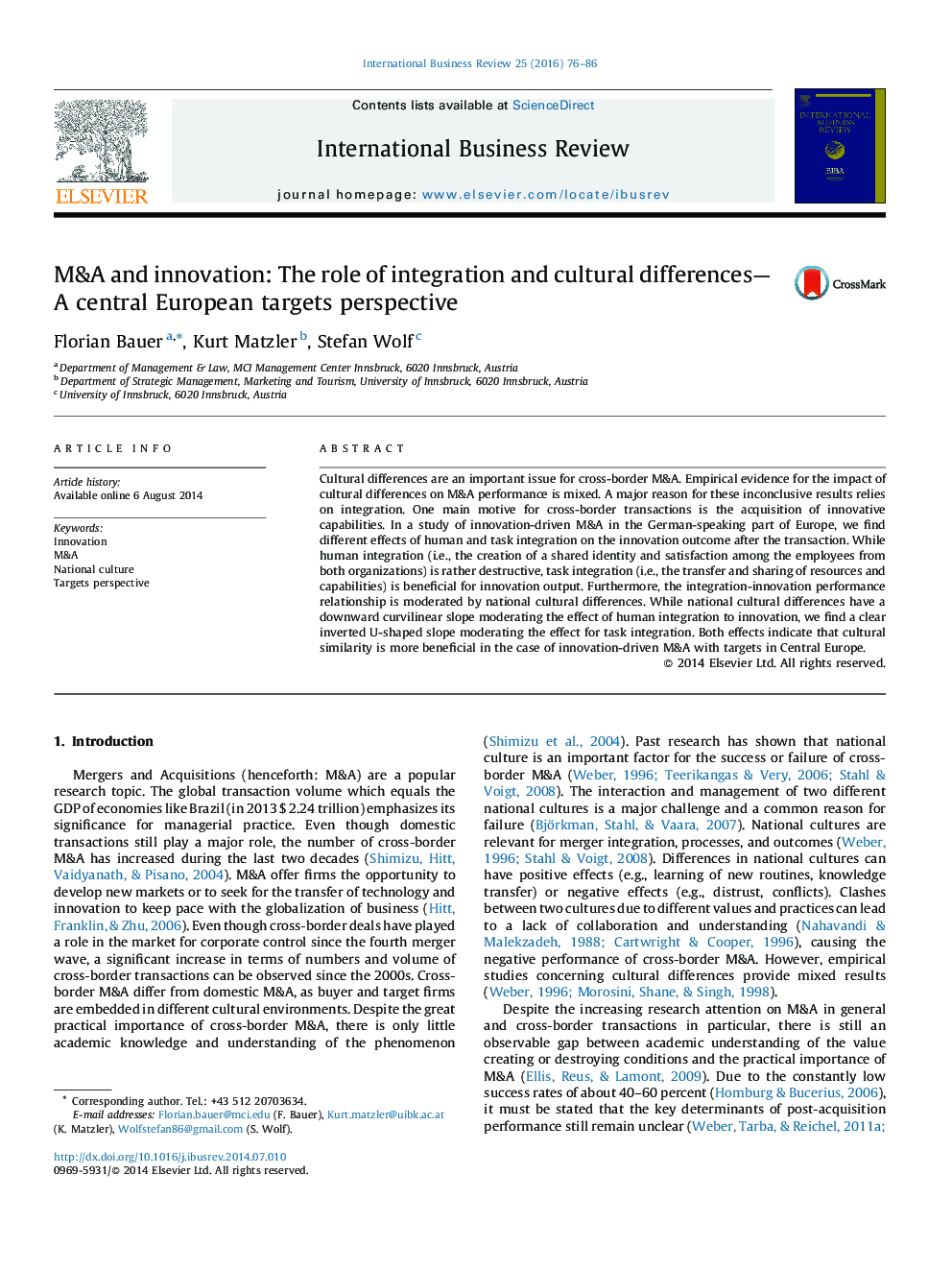| Article ID | Journal | Published Year | Pages | File Type |
|---|---|---|---|---|
| 1001820 | International Business Review | 2016 | 11 Pages |
•We develop and test a model that investigates the moderating role of cultural differences on the path of M&A and innovation.•We separate integration into human and task integration.•We focus on a sample of target firms form the German speaking part of Europe.•We focus on innovation-driven M&A.•Our findings suggest that cultural similarities are a beneficial effect in cross-border M&A.
Cultural differences are an important issue for cross-border M&A. Empirical evidence for the impact of cultural differences on M&A performance is mixed. A major reason for these inconclusive results relies on integration. One main motive for cross-border transactions is the acquisition of innovative capabilities. In a study of innovation-driven M&A in the German-speaking part of Europe, we find different effects of human and task integration on the innovation outcome after the transaction. While human integration (i.e., the creation of a shared identity and satisfaction among the employees from both organizations) is rather destructive, task integration (i.e., the transfer and sharing of resources and capabilities) is beneficial for innovation output. Furthermore, the integration-innovation performance relationship is moderated by national cultural differences. While national cultural differences have a downward curvilinear slope moderating the effect of human integration to innovation, we find a clear inverted U-shaped slope moderating the effect for task integration. Both effects indicate that cultural similarity is more beneficial in the case of innovation-driven M&A with targets in Central Europe.
